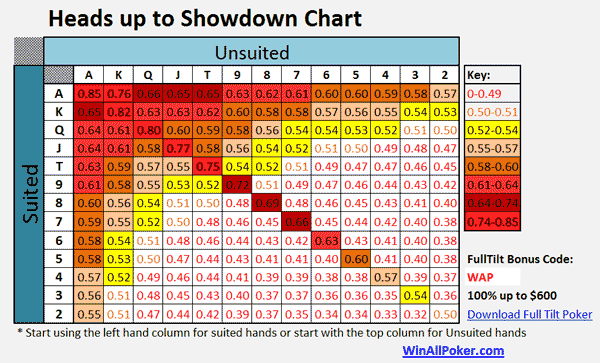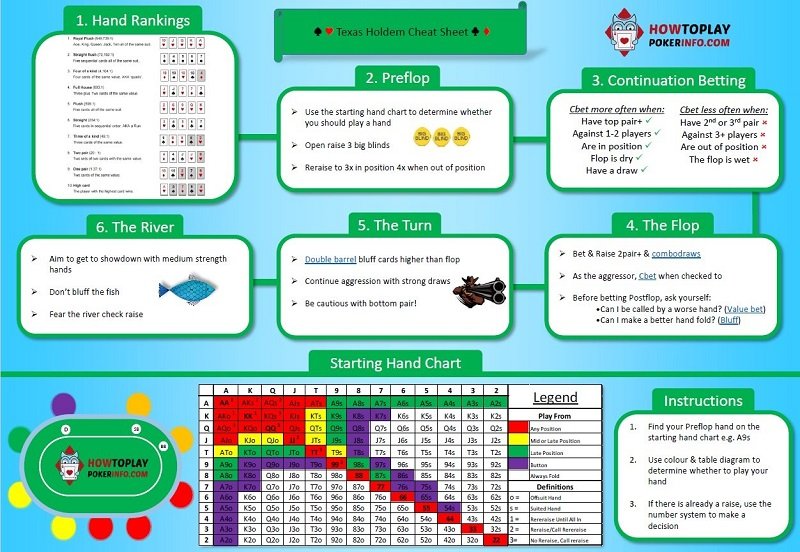Texas Holdem Poker Hand Calculator
Online Casino Texas Holdem Winning Hand Calculator games allow you to play an electronic version of popular casino games such as baccarat, slots, poker, blackjack and roulette. Game outcomes for Online Casino Texas Holdem Winning Hand Calculator games are determined by a Random Number Generator (RNG) contained within the game’s software. Want to know how far ahead or behind you are in a Texas Hold’em hand against one, two or more opponents? Our poker calculator is the perfect medium for finding out the odds in any given situation. Our poker calculator is the perfect medium for finding out the odds in any given situation. The most advanced Poker Odds Calculator on the web. Know your probability of having a winning hand against one or many opponents in Texas Hold'em. The Poker Odds Calculator will help you calculate your chances on a given hand, in any situation. One of the most interesting features of the PokerNews Poker Odds Calculator is the guide on the right column, which will show you which cards should strengthen (green) or weaken (red) your hand. This free online poker odds calculator and analyzer helps you to calculate your hand's winning odds, evaluate possible opponents hands you could lose to and tell you how much to bet optimally. Gain an edge by using our calculator while you are playing online Texas Hold'em. We include the following features: Your winning chance (or equity).
How the poker calculator works
The Grosvenor Casinos Poker Calculator works by using what’s known as a “Monte Carlo” algorithm. This algorithm estimates the percentage of making a hand in Texas Hold’em by simulating what would or could happen had the hand been played out multiple times. The calculator runs all the possible outcomes of the hand from the point at which the player is on the board until it hits a limit of 12,500 simulations.
Why 12,500?
To ensure a perfectly accurate percentage each time, one would need to run hundreds of thousands of simulations, which would cause the calculator to run much slower – especially where there are no board cards. Instead, we have chosen to impose a limit of 12,500 possible outcomes, which means the calculator is within 1.5% accuracy of the displayed percentages. For calculations that have less than 12,500 outcomes (when the hand progresses further) the calculation is more accurate. To ensure the tool calculates hand percentages as quickly as possible, the calculations run on a separate server – as opposed to the individual’s computer.
Starting Hand Selection: Chen Formula : Sklansky Starting Hand Groups
The Chen formula is a system for scoring different starting hands in Texas Hold’em. It was created by Bill Chen for use in the book Hold’em Excellence by Lou Krieger. Bill Chen is also the guy that wrote The Mathematics of Poker.
The process looks a little tricky at first, but it’s really quite straightforward and logical after you have worked through a handful of examples.
The Chen formula.
- Score your highest card only. Do not add any points for your lower card.
- A = 10 points.
- K = 8 points.
- Q = 7 points.
- J = 6 points.
- 10 to 2 = 1/2 of card value. (e.g. a 6 would be worth 3 points)
- Multiply pairs by 2 of one card’s value. However, minimum score for a pair is 5.
- (e.g. KK = 16 points, 77 = 7 points, 22 = 5 points)
- Add 2 points if cards are suited.
- Subtract points if their is a gap between the two cards.
- No gap = -0 points.
- 1 card gap = -1 points.
- 2 card gap = -2 points.
- 3 card gap = -4 points.
- 4 card gap or more = -5 points. (Aces are high this step, so hands like A2, A3 etc. have a 4+ gap.)
- Add 1 point if there is a 0 or 1 card gap and both cards are lower than a Q.(e.g. JT, 75, 32 etc, this bonus point does not apply to pocket pairs)
- Round half point scores up.(e.g. 7.5 rounds up to 8)
For step 5, it’s easier to refer to this extra 1 point as a 'straight bonus' to save confusion between steps 4 and 5. Subtracting 1 point for 1 gap and then adding it back again for lower cards seems a bit awkward I know, but that’s the way it works.
Chen Formula calculator.
Chen formula hand example scores.
- A K
- A = +10 points.
- Suited = +2 points.
- Final score = 12 points.

- T T
- T = 10 x 1/2 = +5 points.
- Pair = multiply by 2.
- Final score = 10 points.
Texas Hold'em Poker Hand Calculator
- 5 7
- 7 = 7 x 1/2 = +3.5 points.
- Suited = +2 points.
- 1 card gap = -1 point.
- 0 - 1 card gap, both cards under Q = +1 point.
- Final score = 6 points. (5.5 points rounded up)
- 2 7
- 7 = 7 x 1/2 = +3.5 points.
- 4+ card gap = -5 points.
- Final score = -1 point. (-1.5 points rounded up)
- A A
- A = +10 points.
- Pair = multiply by 2.
- Final score = 20 points.
So now we know how to work out how many points different hands are worth, what can we do with the numbers to help us with starting hand selection?

Using Chen formula hand points.
The main reason behind using the Chen formula for different starting hands was so that you can categorize them based on the Sklansky and Malmuth hand groups table.
That’s all well and good for helping you to compare the strength of different starting hand in Hold’em, but it doesn’t really do much in the way of strategy for starting hand selection. Therefore, I have done a little bit of work and created a starting hand strategy using the Chen formula.
Chen formula starting hand strategy.
- Only ever consider calling a raise with 10 points or more.
- Always raise or reraise with 12 points or more.
Short-handed strategy. (6 players)
Early position.
- Raise = 9 points or more.
- Fold = 8 points or less.
Mid position.
- Raise = 8 points or more.
- Fold = 7 points or less.
Late position.
- Raise = 7 points or more.
- Fold = 6 points or less.
Full-ring strategy. (10 players)
Early position.
- Raise = 10 points or more.
- Fold = 9 points or less.
Mid position.
- Raise = 9 points or more.
- Fold = 8 points or less.
Late position.

- Raise = 7 points or more.
- Fold = 6 points or less.
'Raise' = Raise if there have been no raises or calls before you.
'Fold' = Fold regardless if there has been a raise before you or not. Just fold.
About my Chen formula starting hand strategy.
Texas Holdem Poker Hand Odds Chart
As with any set of rules or guidelines in poker, this Chen formula starting hand strategy isn’t perfect and will have it’s flaws. However, I like to think that this is an easy-to-use and solid preflop strategy using the Chen formula.
Most of the strategy involves either raising or folding preflop, which is a solid approach to take as a new player and a style that you will grow accustomed to as your game progresses. The starting hand requirements are also a little tight, but that’s only to be expected if you’re using a guide and you haven’t quite found your feet when it comes to starting hand selection yet.
I took inspiration from the Chen formula article at SimplyHoldem.com (no longer active) to create this starting hand strategy. I decided to develop my own because I believe that the guidelines at Simply Holdem were flawed because:
- It does not distinguish between short and full ring games.
- Just calling the big blind is not a profitable way to play NL Hold’em for the most part.
Chen formula evaluation.
The Chen formula is never going to be a complete substitute for proper preflop starting hand strategy. It will also take a little getting used to if you want to work hand scores out on the fly. However, this is as good a formula as you are going to find for working out preflop starting hand strengths in NL Hold’em.
The starting hand strategy I worked out will also have its own flaws, but again this is as good as a simple guideline is going to get for those preflop decisions.
Texas Holdem Poker Hand Odds
Go back to the awesome Texas Hold'em Strategy.
Comments